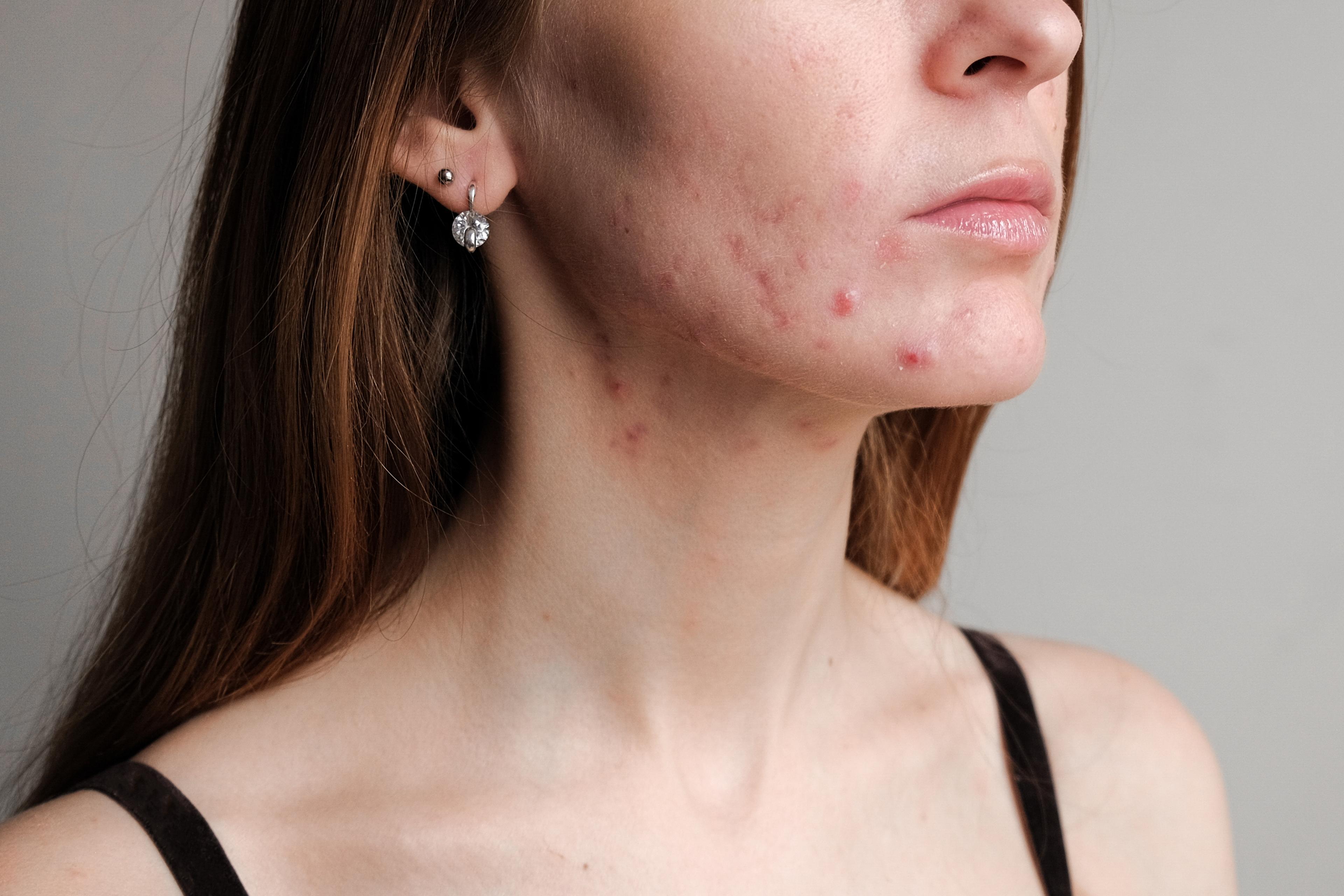Acne affects a HUGE number of people, often teens and young adults. But if it's still affecting you well into adulthood, and you're getting various other symptoms, it could be down to polycystic ovary syndrome. So, let's find out exactly what PCOS is, and how it leads to acne, and we'll get some top tips on treating PCOS-related acne from Dr Claire Ashley (Aesthra Aesthetics), whose experienced it for herself.
How to Treat PCOS Acne
What is PCOS?
Polycystic ovary syndrome (PCOS) is a condition that affects hormone levels in women, and has a direct impact on the way ovaries function. Although it’s not known exactly what causes PCOS, it’s pretty common and affects around one in ten women, and as well as affecting fertility, it can also present with symptoms like excess hair, skin tags, hair loss and acne. And it’s PCOS-related acne that we’ll take a look at in this article, alongside how to treat it.
What triggers acne in PCOS?
So, what exactly causes acne in people with polycystic ovary syndrome? It’s all to do with levels of certain hormones. PCOS disrupts signals sent by the pituitary glands that are supposed to give out the right balance of hormones. This leads to lower levels of the ‘female’ hormones - oestrogen and progesterone, and higher levels of the ‘male’ hormone testosterone, which is what causes acne, due to an overproduction of oil. Unlike teen acne, which is usually on the forehead and cheeks, PCOS acne generally appears around the lower part of the face - the jawline, chin and upper chest - which is often painful. And, on top of its other symptoms, it can really affect confidence and self-esteem.
A skin pro’s experience with PCOS acne
I recently spoke with GP and founder of Aethra Aesthetics - Dr Claire Ashley - who not only treats PCOS-related acne but who has experienced it herself. This is what she says about living with the condition…
“I have struggled with acne-prone skin, large pores and blackheads ever since I was a teenager. When I was younger I tried everything going on the high street, and I mean pretty much everything. I tried medicated and harsh cleansers like Clearasil and those awful pore strips for your nose! Nothing really seemed to work until I went on the combined contraceptive pill, which helped clear up my skin massively. However, I still got spots so, when I got engaged at 27, I decided that I wanted to get my skin in the very best condition for my wedding. I also figured that as a doctor I needed to look a little bit more professional rather than like a spotty teenager. It was then that I started to read around skincare products and ingredients, and became much more informed about what I needed to be using to get my skin into better shape. When I came off the pill after my marriage, I was then diagnosed with PCOS - a hormonal disorder which causes acne (amongst other symptoms) and I suddenly realised why my skin was so terrible!”
How Claire treated her PCOS-related acne
Since her diagnosis, Claire has adjusted her life and skincare habits to cater for her PCOS-related skin. Here’s what she found to work for her.
“The best way to treat my skin has been a combination of changing my lifestyle and using the right skincare ingredients for my particular skin type. In terms of lifestyle, ensuring that I’m eating a healthy diet with lots of vegetables and low GI carbohydrates has helped with both the PCOS and my skin. Avoiding skincare with alcohol has made a big difference, as alcohol is far too drying and then triggers an overproduction of oil. I started to look for skincare products with zinc, salicylic acid, retinol and azelaic acid in, which helped. Then, the final thing that turned my skin from being good to glowing was switching to medical-grade skincare and having regular skin resurfacing treatments with pHFormula.”
PCOS acne recommendations
Given that she’s been through it herself, Claire is the perfect candidate when it comes to treating PCOS-related acne, so I asked her for some advice on what else you can do to ease hormonal acne symptoms and get glowing skin.
“The advice I’d give anyone that has the same skincare concern is, firstly, not to worry about it. Acne is very common and you are not alone if you are feeling down about it. Your GP can offer advice and prescription medications, if required, and for some people this is very helpful. However, it is essential to get your skincare right. Look for the ingredients listed above, keep your cleanser gentle and don’t use any harsh exfoliants - they will ruin your skin. And ALWAYS wear SPF 50.”
Treating PCOS acne: A breakdown
So, if you’re looking to clear up hormonal acne, such as PCOS-related acne, here’s a breakdown of what might help:
- Get a diagnosis from your GP
- Adjust your diet and lifestyle (with medical advice)
- Ditch skincare products containing alcohol
- Use a gentle cleanser
- Add acne-fighting ingredients like zinc, salicylic acid, retinol and azelaic acid into your skincare routine
- See your GP about prescription medication
- Avoid harsh physical exfoliation
- Always wear your SPF
- Check out our 5 top tips for treating acne
Looking for a skincare pro to help you out with your PCOS-related acne? You'll find one right here on Glowday. Choose from thousands of healthcare professionals across the UK and get glowing!

